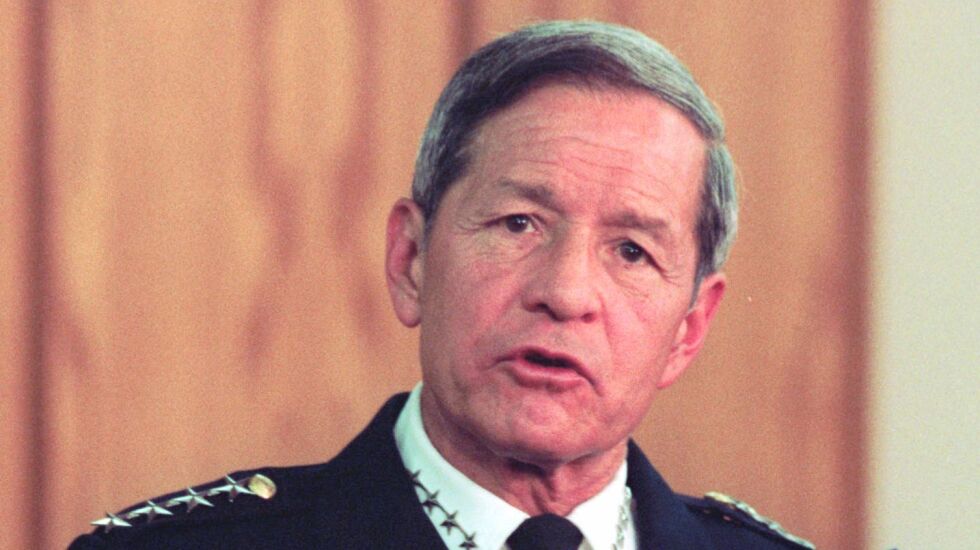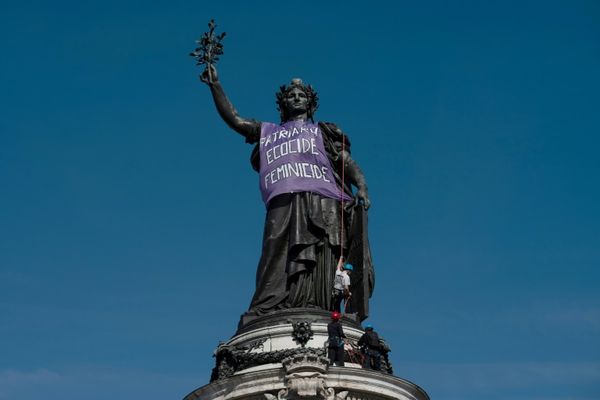
Former Chicago Police Supt. Matt Rodriguez, who made history as the first Latino to lead the department but was forced out under an ethical cloud over his choice of friends, died Wednesday at the age of 87.
Mr. Rodriguez was lauded for his introduction of community policing — a policing strategy based on emphasizing better interactions between police officers and residents — to the city in the 1990s.
But he was pushed into retirement after it was revealed that he had a close friendship with businessman Frank Milito, who had spent nine months in prison after being convicted of mail fraud. The friendship violated the department’s Rule 47, which prohibits officers from keeping company with criminals.
Mr. Rodriguez resigned but made no apologies for the friendship, saying he knew of Milito’s background and the departmental rule.
“I didn’t look on him as Frank the felon,” Mr. Rodriguez said at the time. “He was a friend.”
The police department announced the former superintendent’s death in a post on X, the social media platform formerly called Twitter, dubbing him a “respected leader.”
We extend our deepest condolences to the family of former Chicago Police Superintendent Matt Rodriguez, who passed away this morning at the age of 87. He was a respected leader who cared deeply for the people of Chicago, and the brave men and women of CPD. pic.twitter.com/93tpN8lrVr
— Chicago Police (@Chicago_Police) August 30, 2023
Mr. Rodriguez joined the department in 1959, and worked in several departments, including the Youth Division and units targeting gambling and organized crime, before being appointed superintendent by Mayor Richard M. Daley in April 1992.
Daley named Mr. Rodriguez the city’s top cop on April 13, 1992, the same day that long-forgotten freight tunnels below the Loop flooded, sending water and fish from the Chicago River into the basements of downtown businesses and paralyzing the city for weeks.
Some mayoral opponents claimed Daley timed the announcement to drown out any criticism for not choosing a Black officer to lead the department.
During his tenure as superintendent, Mr. Rodriguez launched an aggressive gun recovery program that contributed to a decrease in violent crime, along with his implementation of community policing.
Despite his history-making role as Chicago’s first Latino top cop, Mr. Rodriguez didn’t give much thought to breaking that type of barrier, according to his wife, Ruth.

“When he got on the Police Department [in 1959], there were maybe three Hispanics — maybe a few more than that, but not many,” she told the Chicago Sun-Times in 1997. “When you take the test to be sergeant and lieutenant, they don’t care what color you are. He always got good grades because he studied hard.”
After the revelation of Mr. Rodriguez’s violation of Rule 47, Daley continued supporting his appointee, but the public’s trust was shaken, and within the department, things had soured since the time he took his post.
Mr. Rodriguez suffered 300 “no-confidence” votes from the police union after a string of controversies in the 1990s. He had terminated the employment of an officer who was paralyzed after being shot, and didn’t extend death benefits to another officer’s widow because he didn’t die in the line of duty.
After leaving the department, Mr. Rodriguez retreated to a Galena home to spend time with his then two grandchildren, the Sun-Times reported in 1998.
He told the newspaper at the time that he felt he “had a lot yet to do,” and was sad to leave the department when he did. But he recalled telling Daley about his friendship with Milito, and the shame that followed.
“I looked in his face and saw the hurt, and I knew what I had to do,” Mr. Rodriguez said at the time.
Mayor Brandon Johnson sent his condolences to Mr. Rodriguez’s family in a statement Wednesday.
“Chicago has lost a history maker today with the passing of former Chicago Police Superintendent Matt Rodriguez, the first Latino superintendent in the history of the Chicago Police Department,” the statement reads.
“A pioneer in the field of community policing, he led the department during a critical period, earning the respect of the brave rank-and-file men and women serving in communities throughout the city.”
Funeral arrangements are pending.







